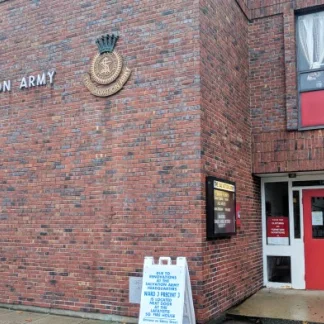Andrew House
Andrew House is a non-profit treatment facility located in Jamaica Plain, MA. An...
Salvation Army - Cambridge is a non-profit care program located in Boston, MA. Salvation Army - Cambridge specializes in the treatment of alcoholism through a faith-based program.
The Salvation Army, part of the evangelical part of the universal Christian Church, is greatly motivated by the love of God. They preach the gospel of Jesus Christ and look forward to meeting human needs in His name without discrimination.
Contact us for more information: (617) 547-3400

Connect with Salvation Army - Umoja Program by calling their admissions team directly.
(617) 547-3400 Website Get DirectionsResearch clearly demonstrates that recovery is far more successful and sustainable when loved ones like family members participate in rehab and substance abuse treatment. Genetic factors may be at play when it comes to drug and alcohol addiction, as well as mental health issues. Family dynamics often play a critical role in addiction triggers, and if properly educated, family members can be a strong source of support when it comes to rehabilitation.
Group therapy is any therapeutic work that happens in a group (not one-on-one). There are a number of different group therapy modalities, including support groups, experiential therapy, psycho-education, and more. Group therapy involves treatment as well as processing interaction between group members.
In individual therapy, a patient meets one-on-one with a trained psychologist or counselor. Therapy is a pivotal part of effective substance abuse treatment, as it often covers root causes of addiction, including challenges faced by the patient in their social, family, and work/school life.
Group therapy is any therapeutic work that happens in a group (not one-on-one). There are a number of different group therapy modalities, including support groups, experiential therapy, psycho-education, and more. Group therapy involves treatment as well as processing interaction between group members.
In individual therapy, a patient meets one-on-one with a trained psychologist or counselor. Therapy is a pivotal part of effective substance abuse treatment, as it often covers root causes of addiction, including challenges faced by the patient in their social, family, and work/school life.
In individual therapy, a patient meets one-on-one with a trained psychologist or counselor. Therapy is a pivotal part of effective substance abuse treatment, as it often covers root causes of addiction, including challenges faced by the patient in their social, family, and work/school life.
Andrew House is a non-profit treatment facility located in Jamaica Plain, MA. An...
Roxbury Comprehensive New Directions Program is a private rehab located in Bosto...
Somerville Mental Health Association is a private rehab located in Somerville, M...
Community Health Care offers outpatient treatment for individuals dealing with o...